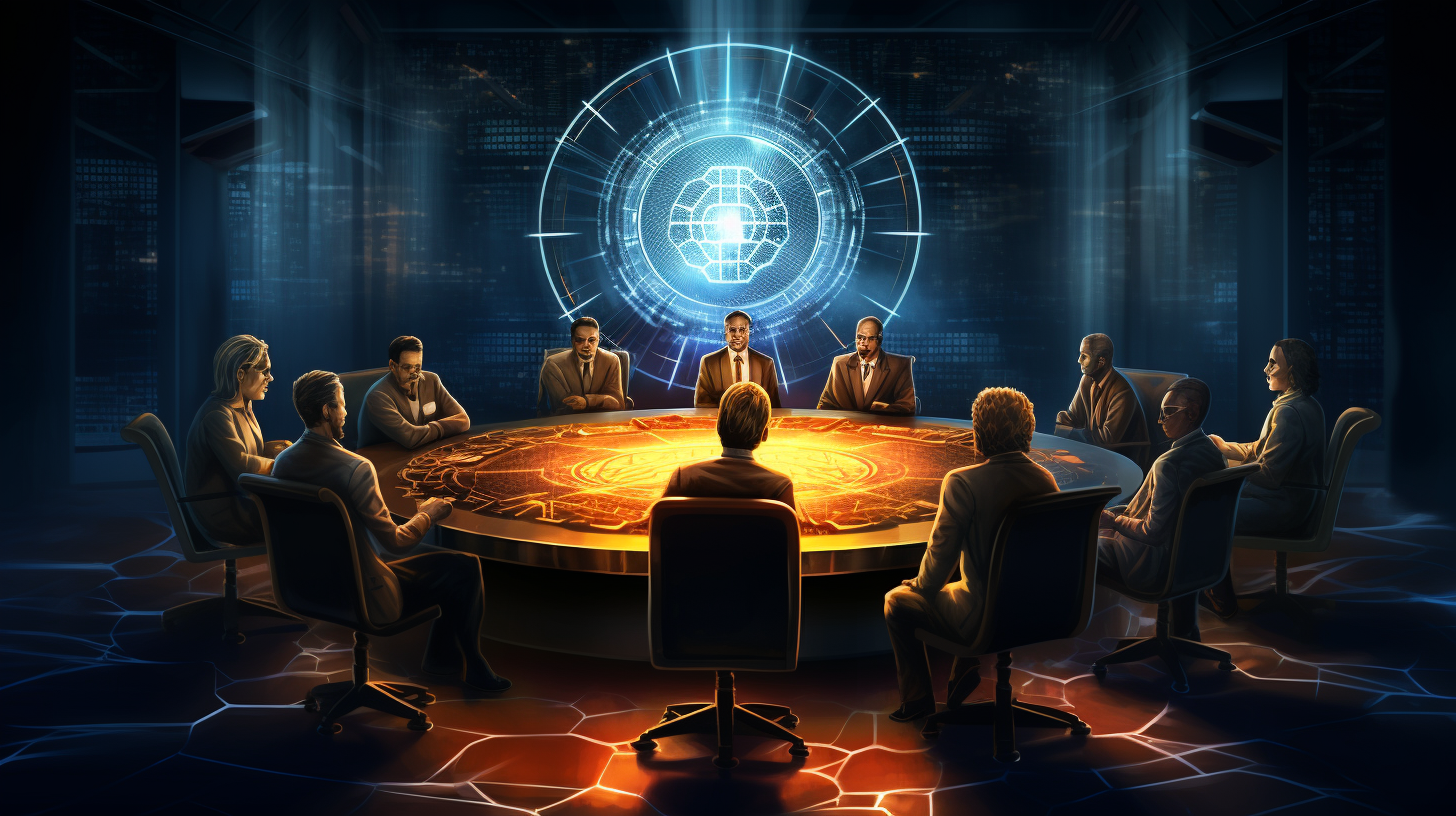Imagine a world where city councils and the halls of power no longer echo with the footfalls of career politicians but buzz with the digital dialogues of citizens voting on civic matters from the comfort of their couches. This isn’t a snippet from a sci-fi novel; it’s the burgeoning reality of Decentralized Autonomous Organizations (DAOs) reshaping governance.
In a world where cryptocurrencies have replaced fiat money, DAOs stand as bastions of digital democracy, bringing power back to the people in an unanticipated revival of the polis spirit of ancient Athens. But instead of gathering in the Agora, citizens now assemble on blockchains.
What is a DAO? At its core, it’s an organization governed by consensus rules embedded in code, controlled by member votes, and transparent as a crystal-clear ledger. Smart contracts have taken the place of bureaucratic paperwork, autonomously executing decisions made by a global community of stakeholders.
DAO leadership isn’t set in stone but fluid like the very cryptocurrencies that pulse through its veins. Votes aren’t cast in ballot boxes but mined in blocks, and the wealth of ideas is more valued than the wealth hoarded in coffers. It’s governance metamorphosed into a truly open-source venture, a jolt of innovation in an otherwise stagnant bureaucracy.
It’s here in this crypto-utopia that we witness governance be decentralized, much like how popular cryptocurrencies operate – without a central authority but with a focus on direct participant engagement. The results? Reduced corruption, individual empowerment, and collective decision-making that reflect the true will of the people.
But what does this democratic digitization mean for the average crypto citizen? Take the recent DAO that oversaw the public park renovations in Neo-Berlin. In this experiment in landscaping democracy, citizens proposed, voted on, and funded a new playground through Ethereum-based smart contracts. The result was a hyper-efficient turnaround unattainable in the snail-paced red-tape world.
‘Carpe crypto’, seize the blockchain – could become the new civic battle cry. Projects from garbage collection to urban planning are being handled by DAOs, their transparent ledger systems nullifying traditional bureaucratic logjams, with efficiency sky-rocketing as red tape disappears.
Yet, the path of disruptive technologies is never without its potholes. The question of legal recognition plagues DAOs much like it did early cryptocurrencies. What happens when a DAO-owned property is disputed? Or when a DAO-issued edict clashes with national laws? These are not hypothetical musings but real challenges that this new arena of governance must grapple with.
Security concerns also hover over this crypto cornucopia. While smart contracts are immutable, they’re also unforgiving – a coding error could spiral into a governance gaffe. The antidote? Continuous peer-review processes and an engaged community always on the lookout for bugs and betterment.
The future of DAOs is radiant with promise. Already, we see DAOs stepping beyond their early roles in finance to embrace social good. They’re funding scholarships, supporting disaster relief efforts, and even enabling groups to combat climate change on a scale that leaves traditional NGOs in the dust.
In conclusion, DAOs are revolutionizing governance, making it more accessible, accountable, and attuned to the needs of the populace. As this crypto-centric governance model evolves, it promises to redefine the relationship between the governed and those who govern in favor of the former, emboldening citizens with real stakes and votes in the shared digital future.
As we look forward to how DAOs will further intrigue and innovate, one thing is clear – the silent hum of blockchain may just become the loudest voice in the room when it comes to governance in the digital age.
